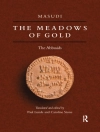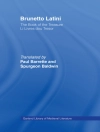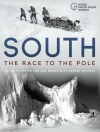In ‘Some Diversions of a Man of Letters, ‘ Edmund Gosse presents a captivating collection of essays that intertwine his reflections on literature, art, and the broader cultural landscape of the late 19th and early 20th centuries. Written in a polished, articulate prose characteristic of the period, this work offers readers an intimate glimpse into Gosse’s intellectual world, exploring themes of aestheticism, the role of the critic, and the nature of artistic inspiration. The literary style amalgamates personal anecdote with scholarly analysis, reflecting the author’s own experiences amidst contemporaneous literary giants, thereby enriching the discourse on the craft of writing itself. Gosse, a notable critic, biographer, and poet, was deeply influenced by his upbringing in a literary family and his exposure to the emerging modernist movements. His associations with prominent figures such as Thomas Hardy and Algernon Charles Swinburne, along with his own polymathic interests, shaped his worldview. ‘Some Diversions of a Man of Letters’ serves as a testament to his keen observations of literary trends and cultural transformations, making it an essential accompaniment to his biographical and critical works. This book is highly recommended for readers interested in literary criticism, as well as those seeking insights into the evolution of British literature during a critical time. Gosse’s keen intellect and engaging narrative style not only illuminate the intricacies of literary life but also provoke thoughtful reflections on one’s own journey through the written word.
عن المؤلف
Edmund William Gosse (1849–1928) was an English poet, author, and critic, known particularly for his rich contributions to the world of literary criticism and for his incisive autobiographical works. Born into a strictly religious household, Gosse’s early literary development and subsequent rebellion against his fundamentalist upbringing would form the backdrop for one of his most renowned books, ‘Father and Son’ (1907), a memoir that illustrates the conflict between dogmatic faith and the emerging scientific rationalism of the time.
Gosse’s prolific career as a man of letters encompassed not only his personal works but also his role as a leading literary critic of the late Victorian and early Edwardian periods. His book ‘Some Diversions of a Man of Letters’ serves as a fine example of his literary style—graceful, erudite, and often tinged with a gentle wit. This collection of essays reflects Gosse’s wide-ranging intellect and his capacity to engage with the cultural and literary mores of his era, providing insights into the works of emerging and established literary figures while offering his readers a guided tour of the intellectual landscape of his time. Through his extensive writing and editorial work, Gosse became a key figure in shaping the conversations around literature as it transitioned into the modernist era, his voice a significant one in the narrative of English literary history.












